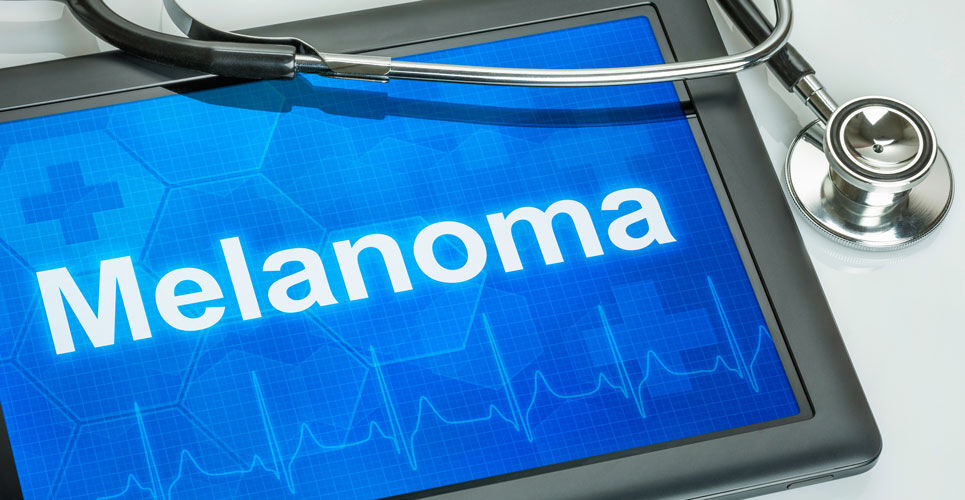Neoadjuvant pembrolizumab in patients with advanced melanoma provides superior event-free survival compared to adjuvant therapy alone
Using neoadjuvant pembrolizumab therapy for patients with stage III or IV resectable melanoma gives greater 2-year event-free survival than adjuvant therapy according to the findings of randomised, phase2 trial by US researchers.
Cutaneous melanoma is the most serious form of skin cancer worldwide with an estimated 325,000 new cases and 57,000 deaths in 2020. In a randomised, placebo-controlled trial of patients with completely resected stage III melanoma, adjuvant treatment with the programmed death 1 (PD-1) inhibitor, pembrolizumab, significantly improved recurrence-free survival compared to placebo. Neoadjuvant therapy involves the provision of systemic treatment before surgery and is designed to improve surgical outcomes for such patients. In fact, work in animal models indicates that there is a significantly greater therapeutic efficacy from using neoadjuvant, compared with adjuvant, immunotherapy to eradicate distant metastases following primary tumour resection. However, the added value of using neoadjuvant pembrolizumab therapy in patients with either stage III or IV resectable melanoma compared to adjuvant treatment alone has not been tested.
For the current study, US researchers performed a randomised, phase 2, open-label trial, in patients with measurable stage IIIB to IVC melanoma that was amenable to surgical resection. Participants were randomised 1:1 to either three doses of neoadjuvant pembrolizumab, surgery followed by 15 doses of adjuvant pembrolizumab or to surgery followed by pembrolizumab for approximately 1 year (adjuvant-only group). The primary end point was set as event-free survival in the intention-to-treat population.
Neoadjuvant pembrolizumab and event-free survival
In total, 313 patients with a median age of 63 years (35% female) were randomised to either neoadjuvant (154) or adjuvant only therapy.
After a median follow-up of 14.7 months, event-free survival was significantly longer in the neoadjuvant group (p = 0.004).
After 2 years, event-free survival occurred in 72% (95% CI 64 – 80) of those given neoadjuvant pembrolizumab compared to 49% (95% CI 41 – 59) in the adjuvant only group. In addition, the incidence of treatment-related adverse events of grades 3 or higher was similar between the two groups (12 vs 14%, neoadjuvant vs adjuvant).
The authors concluded that giving pembrolizumab both before and after surgery resulted in significantly longer event-free survival compared to adjuvant therapy alone.
Citation
Patel SP et al. Neoadjuvant-Adjuvant or Adjuvant-Only Pembrolizumab in Advanced Melanoma. N Eng J Med 2023

